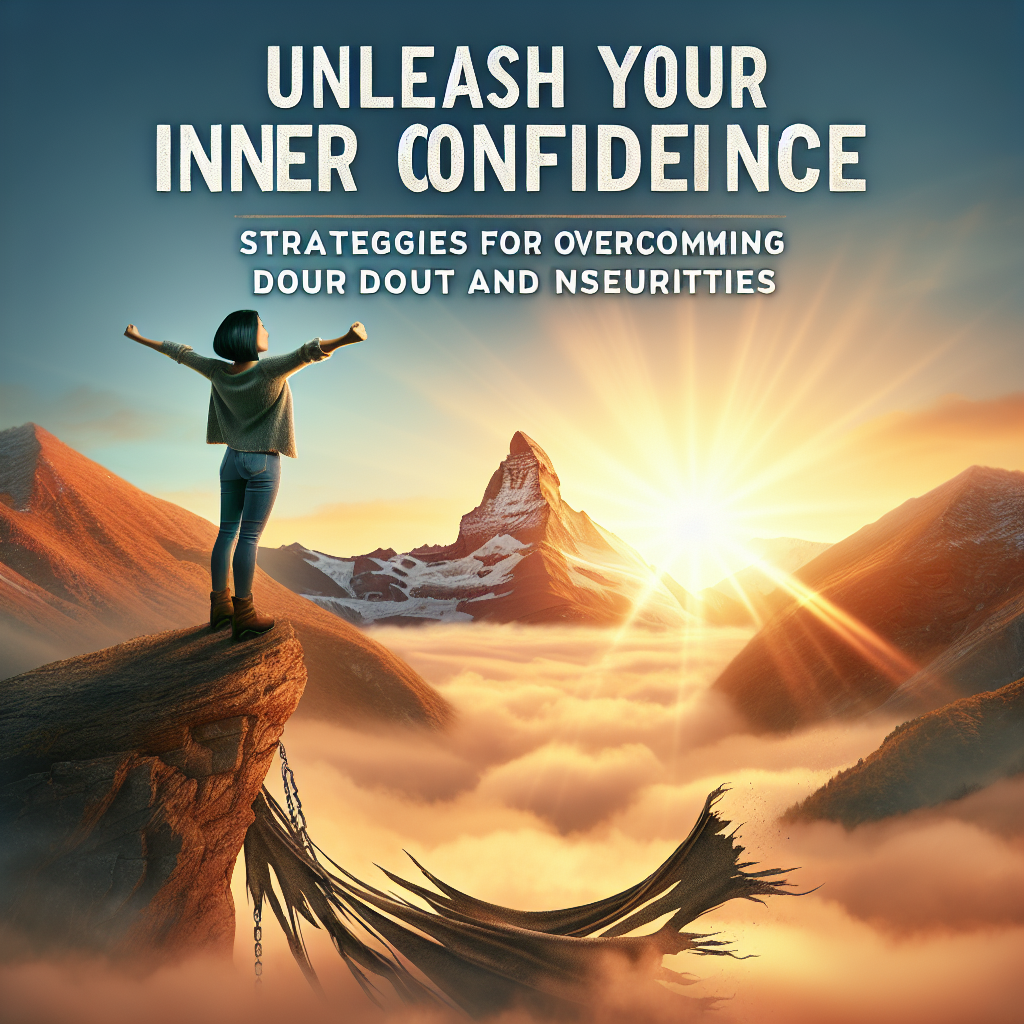Unleash Your Inner Confidence: Strategies for Overcoming Doubt and Insecurities
Confidence is a powerful tool that can help you achieve your goals, make a lasting impression, and navigate through life with ease. However, many people struggle with self-doubt and insecurities that can hold them back from reaching their full potential. In this article, we will explore strategies to help you unleash your inner confidence and overcome doubt and insecurities.
Understanding the Root of Doubt and Insecurities
Before we dive into strategies for building confidence, it’s important to understand where doubt and insecurities come from. Self-doubt often stems from past experiences, negative self-talk, societal expectations, or comparisons to others. Insecurities can also arise from childhood trauma, rejection, or bullying. Identifying the root cause of your doubts and insecurities can help you address them more effectively.
1. Practice Self-Compassion
Self-compassion is essential for building confidence and overcoming doubt and insecurities. Treat yourself with the same kindness and understanding that you would offer to a friend. Acknowledge your flaws and imperfections without judgment or self-criticism. Remember that nobody is perfect, and it’s okay to make mistakes.
2. Challenge Negative Self-Talk
Negative self-talk can fuel self-doubt and insecurities. Challenge your inner critic by replacing negative thoughts with positive affirmations. Instead of saying, “I’m not good enough,” tell yourself, “I am capable and deserving of success.” Practice gratitude for your strengths and accomplishments to boost your self-esteem.
3. Set Realistic Goals
Setting realistic goals is crucial for building confidence and overcoming doubt and insecurities. Break down your goals into manageable steps and celebrate your progress along the way. Focus on your strengths and skills to build confidence in your abilities. Avoid comparing yourself to others and stay true to your unique journey.
4. Step Outside Your Comfort Zone
Stepping outside your comfort zone is a powerful way to boost your confidence and overcome insecurities. Challenge yourself to try new experiences, take on leadership roles, or speak up in social settings. Embrace discomfort as an opportunity for growth and expansion. Remember that growth occurs outside of your comfort zone.
5. Practice Self-Care
Self-care is essential for nurturing your confidence and well-being. Take care of your physical, emotional, and mental health by eating nutritious foods, getting enough sleep, exercising regularly, and managing stress. Engage in activities that bring you joy and relaxation, such as meditation, yoga, or hobbies. Prioritize self-care to recharge and refuel your confidence.
6. Surround Yourself with Supportive People
Surrounding yourself with supportive and uplifting people can boost your confidence and self-esteem. Seek out friends, family members, or mentors who believe in you and encourage your growth. Limit contact with negative influences or toxic relationships that drain your energy and confidence. Build a strong support system that celebrates your strengths and successes.
7. Seek Professional Help
If self-doubt and insecurities are impacting your daily life and well-being, consider seeking professional help from a therapist or counselor. Therapy can provide a safe space to explore your doubts and insecurities, learn coping strategies, and develop a positive self-image. A mental health professional can offer guidance and support as you work through your struggles.
Frequently Asked Questions
Q: How can I overcome imposter syndrome?
A: Imposter syndrome is a common experience where individuals doubt their accomplishments and fear being exposed as a fraud. To overcome imposter syndrome, challenge negative self-talk, celebrate your achievements, seek validation from others, and remind yourself of your skills and qualifications. Practice self-compassion and focus on your growth and progress.
Q: What if I don’t feel confident in social situations?
A: Feeling anxious or insecure in social situations is normal, but it can be challenging to overcome. To boost your confidence in social settings, practice active listening, ask open-ended questions, maintain eye contact, and practice positive body language. Focus on building genuine connections and showing interest in others. Remember that everyone has insecurities, and you are not alone in your struggles.
Q: How can I stop comparing myself to others?
A: Comparing yourself to others can fuel self-doubt and insecurities. To break free from the comparison trap, focus on your unique strengths and talents. Limit your exposure to social media and unrealistic standards. Practice gratitude for your accomplishments and progress. Remember that every individual has their own journey and struggles, and it’s important to stay true to yourself.
In conclusion, building confidence and overcoming doubt and insecurities is a journey that requires self-awareness, self-compassion, and consistent effort. By practicing self-care, setting realistic goals, stepping outside your comfort zone, surrounding yourself with supportive people, and seeking professional help when needed, you can unleash your inner confidence and thrive in all aspects of your life. Remember that you are capable, resilient, and deserving of success. Embrace your uniqueness and shine brightly with confidence.





Leave A Comment